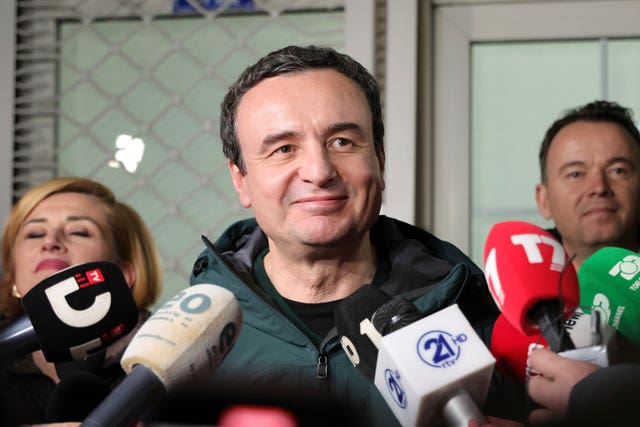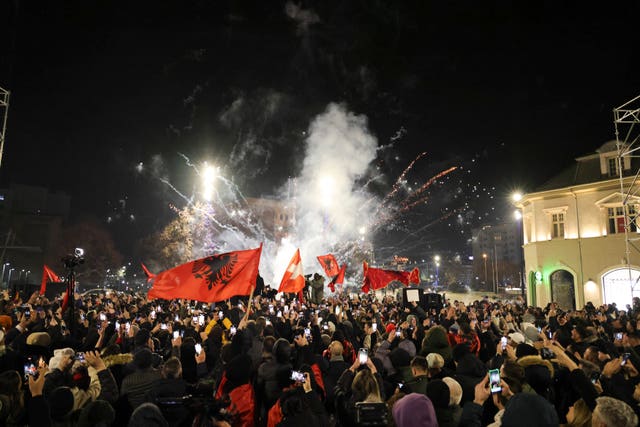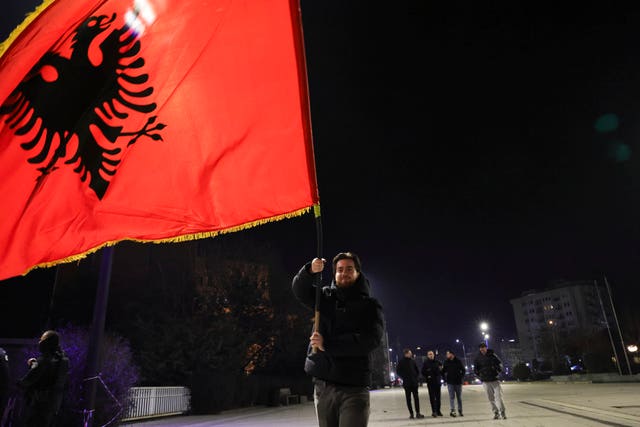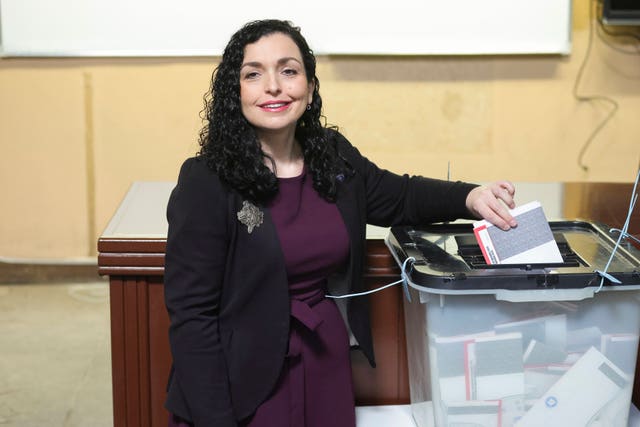Kosovo PM seeks allies for new Cabinet after failing to win majority
The Self-Determination Movement Party took 41.3% of the vote, according to preliminary results.

Kosovo Prime Minister Albin Kurti’s left-wing party has won the most seats in the parliamentary election, but was left without a majority, forcing it to look for an ally to form the next government, preliminary results show.
The vote on Sunday was key in determining who will lead Kosovo amid stalled talks on normalising ties with rival Serbia and lingering questions over foreign funding for one of Europe’s poorest countries.
The election marked the first time since independence in 2008 that Kosovo’s parliament completed a full four-year mandate.

Serbia does not recognise Kosovo’s independence.
With 88% of the votes counted, Mr Kurti’s Self-Determination Movement Party – or Vetevendosje! – had won 41.3%, according to the Central Election Commission, the election governing body.

In third place was the Democratic League of Kosovo (LDK), the oldest party in the country, with 17.8% support.
The LDK lost much of its backers after the death in 2006 of its leader, Ibrahim Rugova.
The Alliance for Kosovo’s Future of former prime minister Ramush Haradinaj garnered 7.7% of the votes.
Mr Kurti remained upbeat, though his remarks gave nothing away about who he plans to ask to join his coalition government.
“The people won. Vetevendosje! won. We are the winners who will form the next Cabinet,” Mr Kurti told journalists as his supporters took to the streets to celebrate.

A preliminary turnout after 92% of the votes counted was 40.6% – about 7% lower than four years ago.
The new 120-seat parliament reserves 20 seats for minorities regardless of election results, 10 of them for the Serb minority.
Mr Kurti’s new term will face multiple challenges after Washington’s froze foreign aid and the European Union’s suspended funding for some projects almost two years ago. He is also under pressure to increase public salaries and pensions, improve education and health services, and fight poverty.
Kosovo, with a population of 1.6 million, is one of the poorest countries in Europe with an annual gross domestic product of less than 6,000 euros per person.
Mr Kurti is also likely to try to repair ties with Western powers, at odds since his Cabinet took several steps that raised tensions with Serbia and Kosovo’s ethnic Serbs, including the ban on the use of the Serbian currency, the dinar, and dinar transfers to Kosovo’s Serbs.

The United States, the European Union and the Nato-led stabilisation force in Kosovo, or KFor, have urged the government in Pristina, Kosovo’s capital, to refrain from unilateral actions, fearing the revival of inter-ethnic conflict.
In Sunday’s election, Srpska Lista, the main party of the ethnic Serb minority, won 2.8% of the vote — just over half of its percentage of four years ago.
The party’s leader, Zlatan Elek, said it was “the absolute winner of this election”, and thanked Serbia’s President Aleksandar Vucic for the “strong support for our people”.





